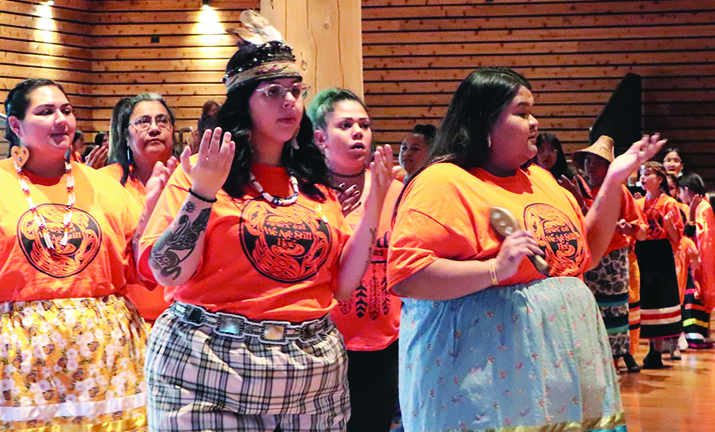
By Wade Sheldon, Tulalip News
Amidst the vibrant tapestry of ribbon and wool skirts and the rich textures of cedar regalia, a single garment served as a powerful unifying symbol: an orange shirt emblazoned with the words ‘We Are Still Here.’ These shirts were distributed on September 30 to all attendees at the Tulalip Tribes hosted event, National Day of Remembrance Awareness for Boarding Schools.
Hundreds of individuals, spanning all age groups, congregated to offer their respects to those who endured the traumatic experience of being forcibly enrolled in boarding schools. The gathering served as a poignant reminder of those who never had the opportunity to return to their families and ancestral homes. These boarding schools, established during the 1860s, were designed to erase every facet of Native culture. From traditional attire to hairstyles and even the languages spoken, these institutions sought to eliminate the rich heritage and traditions that Indigenous people held dear.
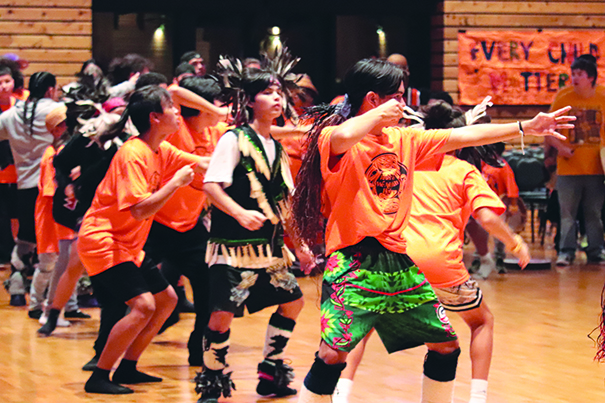
According to the Native American Boarding School Healing Coalition website, “Though we don’t know how many children were taken in total, by 1900, there were 20,000 children in Indian boarding schools, and by 1925, that number had more than tripled. The U.S. Native children that were voluntarily or forcibly removed from their homes, families, and communities during this time were taken to schools far away where they were punished for speaking their native language, banned from acting in any way that might be seen to represent traditional or cultural practices, stripped of traditional clothing, hair and personal belongings and behaviors reflective of their native culture. They suffered physical, sexual, cultural, and spiritual abuse and neglect and experienced treatment that, in many cases constituted torture for speaking their Native languages. Many children never returned home, and their fates have yet to be accounted for by the U.S. government.”
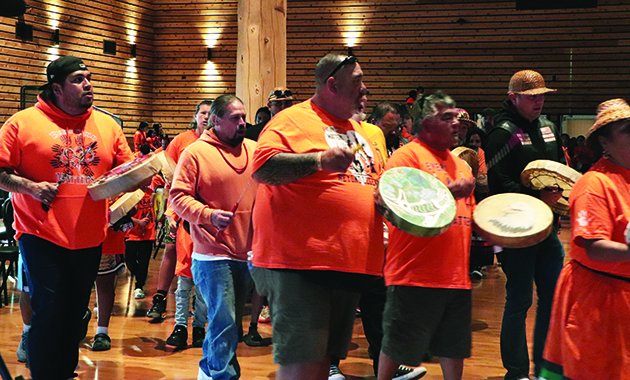
The day or remembrance was established to not only honor the victims and survivors of the boarding school era, but also to embrace our culture that we once thought could be stripped away, but was instead held in and saved to be passed on for generations.
“This event allows us to pause in time and reflect on the history of our ancestors while also taking a moment to see how far we have come,” said event coordinator and Tulalip tribal member, Jessica Bustad. “It’s important to remember the survivors because they are why we are here. The survivors are the ones who went through, lived, and fought to save our culture. They overcame and persevered and did the work to hold on to the teachings they learned before they went into the boarding schools and worked hard to pass it on to the next generation. We must lay this foundation to have these spaces so that our children can practice their culture and show the world this is who we are and that no one will take this away from us again.”
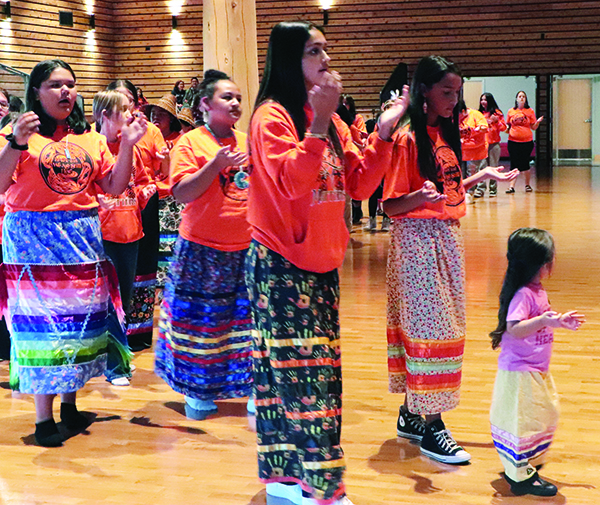
“Many people survived the boarding schools, and we are all ancestors and families of those people because of the strength we have as a community, and that’s powerful and should be celebrated,” said Tulalip Tribes CEO, Rochelle Lubbers. “Every time we do something positive but hard for our community, people take back some of that hurt. We can heal together as a community, and that’s what will save us. Learning to love each other, coming together with things like this where we can heal one song, one dance, one word at a time. We deserve that; our kids deserve that, as they always watch us. Today, they get to watch us be together and take another step forward in that healing.”
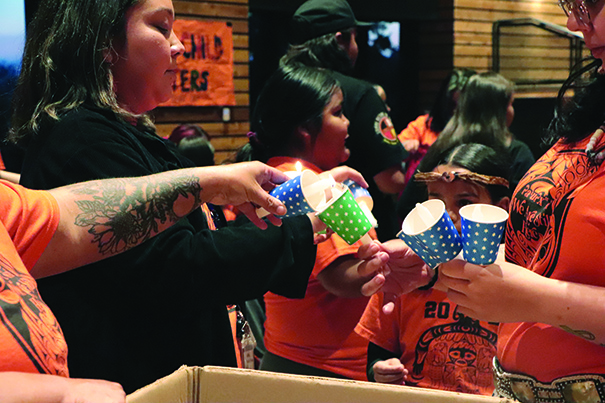
One of these steps involved reclaiming the ability to dance and sing in the sacred traditions of our ancestors. After the event, a coastal jam was organized to honor those denied this privilege. The dance floor quickly filled with exuberant children, surrounded by dedicated drummers and singers. Together, they breathed life back into the sounds of a heritage once believed to be defeated.
If you would like to know more about boarding schools and their effects on the Native American community, visit The National Native American Boarding School Healing Coalition at https://boardingschoolhealing.org